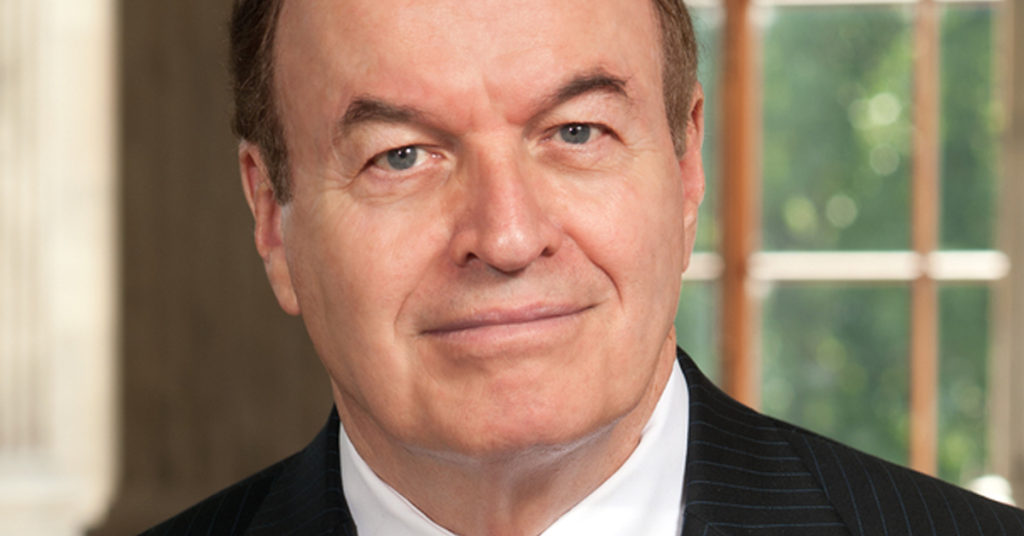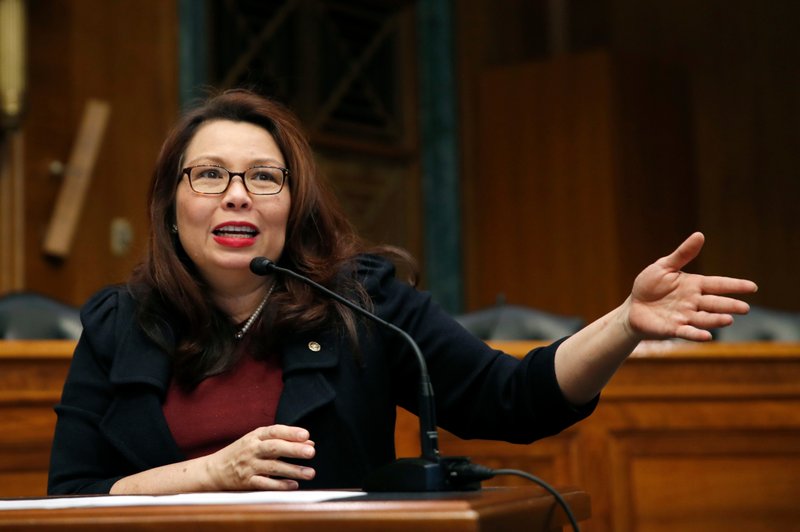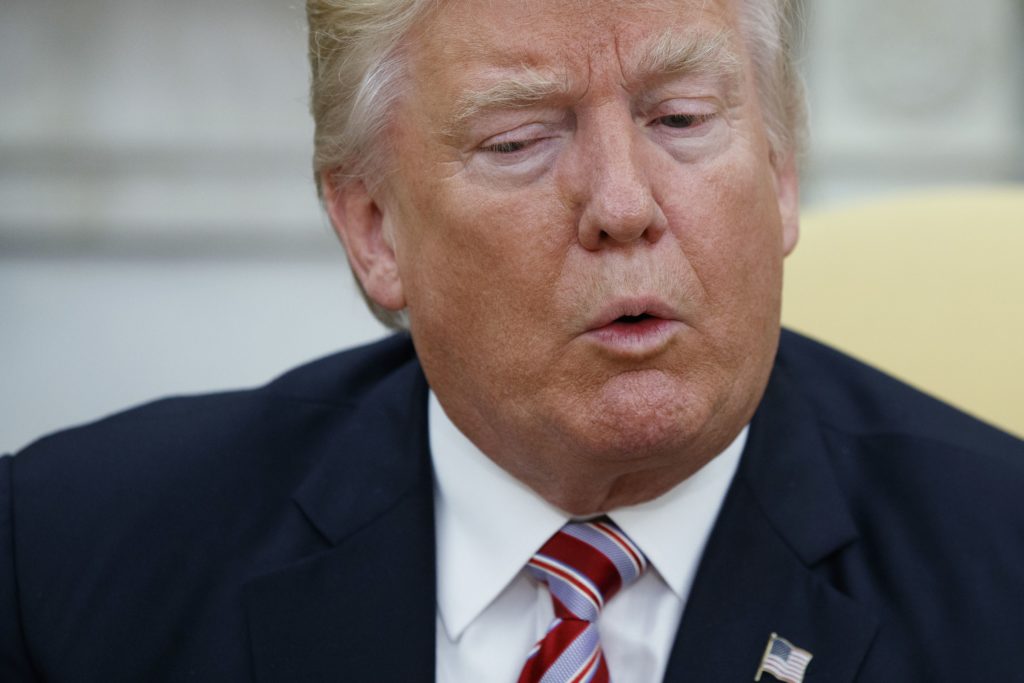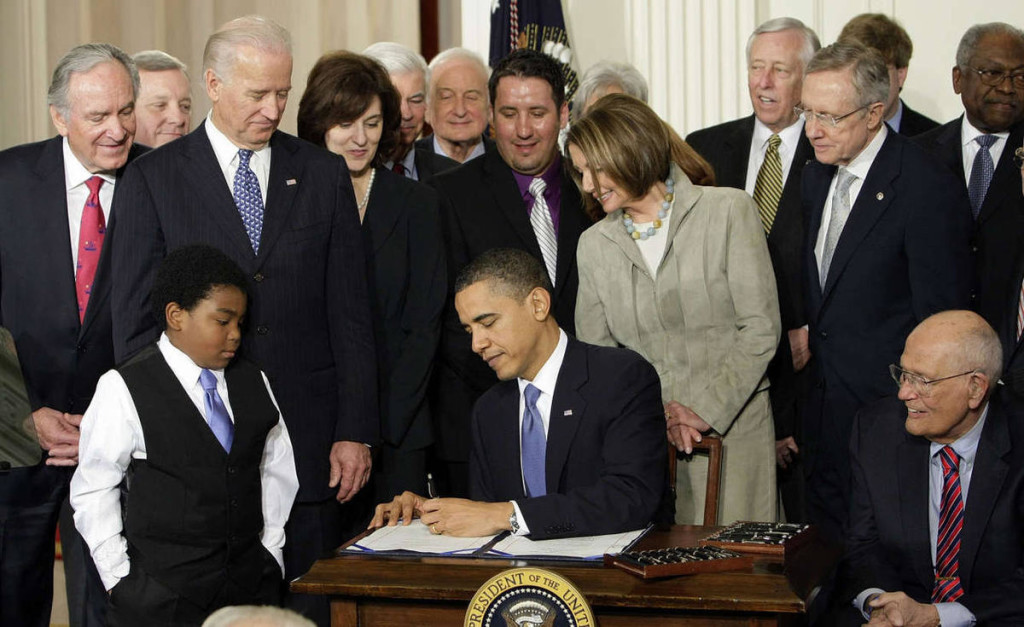Bill to raise tobacco age has unlikely allies: Altria, Juul

Congress is moving to pass the biggest new sales restrictions on tobacco products in more than a decade, with support from two unlikely backers: Marlboro-cigarette maker Altria and vaping giant Juul Labs. The legislation would raise the minimum age to purchase all tobacco products, including electronic cigarettes, from 18 to 21 nationwide, a step long-sought by health advocates. But in the past year Juul and Altria have emerged as the biggest supporters of the measure, blanketing Capitol Hill with lobbyists and advertisements touting their support for a national “Tobacco 21” law. Tobacco critics contend the companies’ support is calculated to head off even harder-hitting government action: a ban on all flavored tobacco products, including fruit and dessert e-cigarettes. Their stance puts them in the unusual position of criticizing a move they long supported, arguing that the sales restriction isn’t enough. “Altria and Juul clearly support this in order to argue that no other action is necessary,” said Matthew Myers of the Campaign for Tobacco-Free Kids. “If you don’t eliminate the flavors that the industry has used to fuel the epidemic, you won’t solve the youth e-cigarette crisis.” The bipartisan legislation, supported by Senate Majority Leader Mitch McConnell of Kentucky, has been attached to a package of must-pass spending bills that will keep the government running into next year. Juul and Altria — the vaping company’s biggest investor — threw their support behind the bill earlier this year amid a backlash against e-cigarettes at the local, state and national levels. E-cigarettes are battery-powered devices that typically heat a flavored nicotine solution into an inhalable aerosol. Current federal law prohibits sales of e-cigarettes and all other tobacco products to those under 18. But more than one in four high school students report vaping regularly, according to the latest government figures. And health officials have called the vaping trend an “epidemic.” Until September, Juul argued that its sweet flavors — including mango, mint and fruit — could help adult smokers switch from traditional cigarettes to vaping. But the company dropped that message as President Donald Trump announced plans to remove virtually all vaping flavors from the market, due to their appeal to children. The Silicon Valley company has halted sales of all but two of its flavors, menthol and tobacco, and pledged not to oppose Trump’s plan. But momentum for the nationwide ban has faded amid push-back from vaping advocates and some conservative groups. And Trump has voiced support for alternative approaches to keep e-cigarettes away from kids, including raising the purchase age to 21. The age hike is expected to limit the supply of all vaping and tobacco products in high schools by putting them out of reach to 12th graders. Myers’ group and other health advocates say Congress should both raise the age limit and ban all “kid-friendly” flavors. Even with most of Juul’s flavors off the market, smaller companies continue to market an array of flavored products, including “grape slushie,” “strawberry cotton candy” and “sea salt blueberry.” And the industry’s main trade association is suing to keep e-cigarettes, including flavors, widely available. Altria, the nation’s largest tobacco company, said it supports a “clean” Tobacco 21 bill — focused exclusively on raising the age limit — because it is the “quickest and most effective” way to address the recent surge in teen vaping. For decades previously, Altria and other tobacco companies aggressively defended the 18-year-old minimum purchase age. Juul has similarly supported legislation that raises the purchase age without touching flavors. And while the companies say they lobby separately, both quickly backed the Tobacco 21 bill introduced in May by McConnell and Virginia Democratic Sen. Tim Kaine. The companies’ support sapped attention away from other proposals that would have gone much further. For example, a bill from New Jersey Democratic Rep. Frank Pallone would have raised the purchase age to 21 and banned flavors from all vaping and tobacco products — including menthol cigarettes — and prohibited online sales. The bill was endorsed by a dozen health groups including the American Academy of Pediatrics, the American Cancer Society and the American Lung Association. “Flavors attract kids and kids are the tobacco industry — including the e-cigarette industry’s — future,” said Erika Sward, a vice president with the American Lung Association. But efforts to advance flavor restrictions in the Senate fell flat, including a bill sponsored by Sen. Lisa Murkowski, Republican-Alaska, and Sen. Dick Durbin, Democrat-Illnois, that was withdrawn from committee consideration at the last minute. “Because I wasn’t certain that I had the votes at the time,” Murkowski told The Associated Press. “You don’t want to lose.” The logic for hiking the purchase age for cigarettes is clear: most underage teens who use tobacco get it from older friends. An estimated 90 percent of smokers start before age 18. Delaying access to cigarettes is expected to produce major downstream health benefits, with one government-funded report estimating nearly 250,000 fewer deaths due to tobacco over several decades. Still, anti-tobacco experts say age restrictions are only effective when they are vigorously enforced, and tobacco sales can fall through the cracks amid a patchwork of local, state and federal law enforcement. They point to underage drinking as an example of the limited impact of age-based restrictions. State laws banning tobacco sales to those under 18 evolved over several decades and were reinforced by a federal law in 2009. The same law banned all flavors from traditional cigarettes except menthol, which received a special exception at the behest of tobacco lobbyists. More than a third of U.S. states — including California, Illinois, New York and Texas — and the District of Columbia have already raised their minimum purchase age to 21. Anti-smoking groups have tracked the trend with measured support, noting the role of Juul and Altria lobbyists behind many of the efforts. In several cases, anti-tobacco advocates have flagged provisions that they say undercut the state laws’ effectiveness. These provisions, known as pre-emption, can stop city and county officials from imposing stricter tobacco
Democrats protest $200M in additional border wall transfers

President Donald Trump has quietly transferred more than $200 million from Pentagon counterdrug efforts toward building his long-promised wall along the U.S.-Mexico border, drawing protests from Democrats who say he is again abusing his powers. The move would shift $129 million to wall construction from anti-drug efforts in Afghanistan — the source of perhaps 90 percent of the world’s heroin — along with $90 million freed up by passage of a stopgap funding bill, top Democrats said in a letter to Secretary of Defense Mark Esper. The Defense Department “was faced with a simple choice: either additional funds be used for their intended purpose, to accelerate our military’s efforts to combat heroin production in Afghanistan; or divert these funds to pay for cost increases of a border wall project that does not have the support of the American people,” the Democrats wrote. Senator Dick Durbin of Illinois, Chuck Schumer of New York and Patrick Leahy of Vermont took the lead, noting that the heroin trade is a major funding source for the Taliban and urging the Pentagon to “redouble its efforts to starve the Taliban of a vital funding source and reduce the scourge of heroin abuse in this country and abroad.” Trump has shifted more than $6 billion from Pentagon accounts to pay for border fence construction, considerably more than lawmakers have provided through annual appropriations bills. Wall funding has been a major source of conflict between Capitol Hill Democrats and Trump as they negotiate agency funding bills each year. For instance, Trump was forced to settle for just $1.4 billion in wall funding in talks this winter. He issued a controversial declaration of a national emergency shortly afterward that allowed him to shift almost three times as much money from military construction accounts to wall building. A fight over the wall issue is tying up efforts to begin serious negotiations on wrapping up $1.4 trillion worth of agency appropriations by Thanksgiving. Separately, the Senate is expected to vote Thursday to sustain Trump’s veto Tuesday of legislation to reject his emergency declaration. By Andrew Taylor Associated Press Republished with the permission of the Associated Press.
Richard Shelby: Border security meeting with Donald Trump ‘the most positive I’ve had in a long time’

President Donald Trump appears to be taking a more positive view of Capitol Hill talks on border security, according to negotiators who struck a distinctly optimistic tone after a White House meeting with a top Republican on the broad parameters of a potential bipartisan agreement. Appropriations Committee Chairman Richard Shelby of Alabama said Thursday’s session in the Oval Office was “the most positive meeting I’ve had in a long time” and that the president was “very reasonable.” Down Pennsylvania Avenue at the Capitol, the mood among negotiators was distinctly upbeat, with participants in the talks between the Democratic-controlled House and GOP-held Senate predicting a deal could come as early as this weekend. There’s a Feb. 15 deadline to enact the measure or a stopgap spending bill to avert another partial government shutdown, which neither side wants to reprise. Republicans are especially eager to avoid another shutdown after they got scalded by the last one. Trump had previously called the talks a “waste of time,” and he’s threatened to declare a national emergency to bypass Congress and build a wall on the U.S.-Mexico border. But Shelby said Trump during their meeting “urged me to get to yes” on an agreement. Publicly on Thursday Trump took a wait-and-see approach. “I certainly hear that they are working on something and both sides are moving along,” Trump said. “We’ll see what happens. We need border security. We have to have it, it’s not an option. Let’s see what happens.” The White House is committed to letting the negotiations play out, with some saying they are “cautiously optimistic” about getting a deal they could live with, said a senior administration official who lacked authorization to publicly discuss internal deliberations and spoke on condition of anonymity. The new openness comes after Trump delivered a well-received State of the Union speech in which he preached the value of bipartisanship. Despite the newfound optimism, Trump continues to threaten to declare a national emergency to circumvent Congress if lawmakers fail to reach a deal he can stomach. Still, Sen. Lindsay Graham, Republican-S.C., a close ally of Trump, said Thursday that the deal could be a good starting place — suggesting Trump could take additional action if needed to secure more wall funding without congressional approval. “I would recommend that this will probably be a good down payment and what else is lacking, the delta between what you want and what you get, there are other ways to do it, and I expect the president to go it alone in some fashion,” Graham told reporters. Shelby said he and Trump didn’t discuss whether Trump still might use an emergency declaration even if there’s a deal, saying: “The president’s got constitutional powers. … I would think he wouldn’t, but I don’t know what the situation” will be. Beyond the border security negotiations, the measure is likely to contain seven appropriations bills funding domestic agencies and the foreign aid budget, as well as disaster aid for victims of last year’s hurricanes and western wildfires. “I’m hopeful,” said Senate Majority Leader Mitch McConnell, R-Ky. “I do like the idea of getting all of last year’s work finished, and I hope that’s where it ends up.” Any move by Trump to fund a border barrier by executive fiat, however, would roil many Republicans on Capitol Hill, raising the likelihood that both House and Senate could pass legislation to reverse him. Trump could veto any such measure, but he’s also certain to face a challenge in the courts. “If Congress won’t participate or won’t go along, we’ll figure out a way to do it with executive authority,” Acting White House Chief of Staff Mick Mulvaney said on Fox News Channel’s “Hannity” on Wednesday. Mulvaney said that the administration has identified well more than $5.7 billion to transfer to wall construction, saying they would try to avoid legal obstacles. “Find the money that we can spend with the lowest threat of litigation, and then move from that pot of money to the next pot that maybe brings a little bit more threat of litigation,” Mulvaney said. It’s clear that Trump won’t get anything close to the $5.7 billion he’s demanded for wall construction, just as House Speaker Nancy Pelosi, Democrat-Calif., will have to depart from her view that there shouldn’t be any wall funding at all. Last year, a bipartisan Senate panel approved $1.6 billion for 65 miles of pedestrian fencing in Texas — in line with Trump’s official request. The negotiations aren’t likely to veer very far from that figure, aides involved in the talks said, and newly empowered House Democrats were looking to restrict use of the money. A key negotiator, Sen. Dick Durbin, Democrat-Ill., said details on nettlesome border wall issues haven’t been worked out. Sen. Roy Blunt, Republican-Mo., another participant, said both sides are showing flexibility, including Democrats who insisted during the recently-ended 35-day shutdown on no wall funding at all. “They are not opposed to barriers,” Blunt said about Democrats. “And the president, I think, has embraced the idea that there may actually be something better than a concrete wall would have been anyway.” Pelosi told reporters Thursday that she was hopeful of an agreement that would “protect our borders as we protect our values.” Rep. Lucille Roybal-Allard, Democrat-Calif., another negotiator, acknowledged that Democrats could possibly lose votes on any final deal and that it’s “unrealistic” to think there would be no funding at all for any physical barriers. “Like in any negotiation — if the Republicans and the White House are saying they need barriers, wall, whatever you want to call it, and that is an absolute objective, and we’re saying we want some other things — like in anything else, it’s a trade off,” she said. Among the things Democrats are battling against are higher levels of funding for detention beds to hold migrants crossing into the U.S. illegally. ___ This story has been corrected to reflect the White House meeting was between Trump and Shelby, not between
Richard Shelby says ‘The dialogue is good’ as wall deadline nears

President Donald Trump and House Speaker Nancy Pelosi struck starkly different tones in their border security standoff Wednesday, as Trump planned a rally in a Texas border city he says exemplifies the need for a wall and Pelosi said she’d back any bipartisan deal congressional bargainers produce. The contrasting pathways — with Trump set to appear before raucous supporters and Pelosi signaling compromise — came with just over a week until a Feb. 15 deadline for negotiators to reach agreement or potentially face a renewed partial government shutdown. House-Senate bargainers say their talks have become increasingly substantive and some lawmakers — including Pelosi herself — expressed hopes that negotiators might produce an accord as soon as Friday. Participants said the two sides were narrowing differences in their talks. Rep. Chuck Fleischmann, Republican-Tennessee, a negotiator, said Democrats were showing some flexibility in the semantic dispute over the type of physical barriers they would accept while Republicans seemed potentially willing to limit where the structures might be built. “That basically sets the stage for a very reasonable, flexible negotiation,” he said. Other unresolved questions include the amount to be spent on border security, and whether — as Democrats have proposed — to reduce the number of detention beds for migrants available to the federal Immigration and Customs Enforcement agency, Fleischmann said. “If they come up with a bipartisan agreement, I’m happy to support it,” Pelosi, Democrat-California, told reporters. She said she hoped Trump would take “the same hands off” approach. Democrats have been in a position of strength in the talks, after Republicans lost House control in November’s elections, Trump forced a record 35-day federal shutdown and surrendered without getting $5.7 billion he’s demanded for a wall. Senate Majority Leader Mitch McConnell, Republican- Kentucky, has also given bargainers a green light to seek a deal that he’s said he hopes Trump would find “worth signing.” If Pelosi and McConnell embrace a bipartisan agreement, it could isolate Trump and pressure him to accept it without re-escalating the fight. Trump has threatened a new shutdown or a declaration of a national emergency to access other budget funds if he’s not satisfied with a deal — steps members of both parties oppose. Bargainers met Wednesday privately for nearly two hours with federal border patrol and customs officials to hear their recommendations on how to secure the Southwest border. But several lawmakers emerged with differing conclusions. No. 2 Senate Democratic leader Richard Durbin said lawmakers were told the top priority was technology that could screen vehicles for drugs or migrants at border ports of entry. “They don’t rule out barriers, they don’t rule out fencing, but that isn’t the first priority,” Durbin told reporters. But Sen. Richard Shelby, Republican- Alabama, said the officials suggested a three-pronged approach using barriers, technology and personnel. He said the closed-door session was constructive. “The dialogue is good. The tone is good. We’re talking about substance,” Shelby said. He also said that in a phone conversation with Pelosi, “I just said, ‘Look, can we reach a yes on this in any way or are we wasting our time.’ She said, ‘No, keep working together,’ and she would like to see a legislative solution, the sooner the better.” In comments that suggested a potential avenue for agreement, some lawmakers suggested that giving local officials a say would be pivotal. “We can probably get there on some sort of enhanced barriers with local input,” said another negotiator, Rep. Henry Cuellar, Democrat-Texas. Democrats have proposed spending as much as $1.6 billion for border security including some types of physical barriers, but it remains unclear how much more money they’d accept as part of a deal. Cuellar said $5.7 billion for the wall is “not going to happen.” Meanwhile, the White House said Trump will hold his first campaign rally of the year next Monday in El Paso, Texas. His campaign manager, Brad Parscale, tweeted that the rally will be held “less than 1000 feet from the successful border fence that keeps El Paso safe!” In his State of the Union address Tuesday, Trump cited El Paso as once having “extremely high rates of violent crime. He asserted that with its wall, “El Paso is one of the safest cities in our country.” In fact, El Paso has never been considered one of the nation’s most dangerous cities and its trends in violent crime mirror national swings. In 2005, the city had a murder rate of 2.5 for every 100,000 residents, compared with a national rate of 5.6. By 2010 after the wall was built, El Paso’s murder rate had dropped to 0.9 for every 100,000 residents, compared with a national average of 4.8. Rep. Veronica Escobar, Democrat-Texas, tweeted that “El Paso has been one of the safest cities in the nation long before the wall was built in 2008. #WallsDontWork.” “El Paso is safe due to its people, the good community relations with law enforcement, and the trust of all communities in our local institutions,” Fernando Garcia, executive director of the Border Network for Human Rights, said in a statement. “El Pasoans should be offended by the way the president used our community to advance his racist and xenophobic agenda.” Republished with permission from the Associated Press
Babies of senators now welcome in Senate chamber

Who doesn’t like babies? No one in the Senate, apparently — at least not enough to block a historic rules change that passed Wednesday allowing the newborns of members into the chamber. Its passage without objection came despite plenty of concern, some privately aired, among senators of both parties about the threat the tiny humans pose to the Senate’s cherished decorum. “I’m not going to object to anything like that, not in this day and age,” said Sen. Pat Roberts, R-Kan., father of three and grandfather of six. He then noted that a person can stand in the door of the cloakroom, a lounge just off the chamber, and vote. “I’ve done it,” he said. Allowing babies on the Senate floor, he said, “I don’t think is necessary.” Sen. Orrin Hatch, the father of six, grandfather of 14 and great-grandfather of 23, said he had “no problem” with such a rules change. “But what if there are 10 babies on the floor of the Senate?” he asked. The inspiration for the new rule is a small bundle named Maile Pearl, born April 9 to Illinois Democrat Tammy Duckworth —the only sitting senator in U.S. history to give birth. In a statement, Duckworth thanked her colleagues for “helping bring the Senate into the 21st Century by recognizing that sometimes new parents also have responsibilities at work.” Their concerns and more were shared by Republicans and Democrats, according to interviews Wednesday. “It is a big change,” Sen. Amy Klobuchar, D-Minn., said in a telephone interview, as leaders of both parties sought to clear the new rule without objection, or public discussion. The private reassurances to members of both parties, she said, have “been going on for weeks.” Teleworking is not an option in the Senate, which requires members to vote in person. So Duckworth raised a rare question that split her colleagues more along generational lines than well-worn partisan ones. Duckworth proposed changing the rules to allow senators with newborns — not just Duckworth, and not just women — to bring their babies onto the floor of the Senate. This, recalled Klobuchar, did not go entirely smoothly for the two months she privately took questions about the idea and its potential consequences — diaper changes, fussing and, notably, nursing. Sen. Tom Cotton, father of two, said he has no problem with the rule change. But the Arkansas Republican acknowledged that some of his colleagues do, “so the cloakroom might be a good compromise.” Klobuchar’s answer to that suggestion noted that Duckworth lost both legs and partial use of an arm in Iraq, and mostly gets around by wheelchair. “Yes, you can vote from the doorway of the cloakroom, but how is she going to get to the cloakroom when it’s not wheelchair accessible?” she asked. Some senators proposed making an exception for Duckworth. But her allies said the Senate should make work easier for new parents. “We believe strongly, and she did, that it should be a permanent rules change.” Having 10 babies on the Senate floor, as Hatch suggested, “would be a delight,” Klobuchar said. “We could only wish we had 10 babies on the floor. That would be a delight,” retorted Klobuchar, noting that such a conflagration would probably mean more young senators had been elected in a body where the average age of members tops 60. There was more, voiced privately, Klobuchar said — including whether Duckworth intended to change Maile’s diaper or nurse her new baby on the Senate floor. Most senators, though, were supportive, Klobuchar said. Majority Leader Mitch McConnell, R-Ky., and Rules Committee Chairman Roy Blunt, R-Mo., both fathers, helped or did not stand in the way. McConnell did not answer a reporter’s question Wednesday about whether he had any concerns about babies on the Senate floor. Several others were happy to voice support for the rules change, and could not resist taking a jab at their colleagues. “Why would I object to it? We have plenty of babies on the floor,” joked Sen. Marco Rubio, R-Fla. But there still was some confusion. Just after the unanimous vote, Sen. Dick Durbin, D-Ill., said it would do the tradition-bound Senate some good to see “a diaper bag next to one of these brass spittoons, which sit on the floor, thank goodness, never used.” Oklahoma Republican James Inhofe took issue with that, saying: “They don’t use diaper bags anymore. They’re disposable diapers.” Diaper bags are generally used to carry clean diapers and other supplies when parents and babies go out. Sometimes, they hold dirty naps until they can be disposed of. Republished with the permission of the Associated Press.
Illinois’ Dick Durbin says Donald Trump is ‘dangerous’

The Latest on President Donald Trump and the FBI (all times local): 11:10 a.m. The No. 2 Senate Democrat, Dick Durbin of Illinois, says President Donald Trump is “dangerous.” Durbin says Trump is “dangerous because he may be obstructing justice” in the investigation of Russia’s involvement in the 2016 election and possible ties to Trump’s own campaign. And, Durbin says, “his credibility has been destroyed.” Durbin says: “When you’re the leader of the free world you need to be credible” — in your own country and around the world. The Illinois Democrat says Trump has lost credibility, given his firing of FBI Director James Comey and a constantly shifting explanation for why it happened. Durbin made his comments Friday on “Morning Joe” on MSNBC. Piece by piece, the FBI’S Acting Director Andrew McCabe, during Senate testimony Thursday, undermined the White House’s explanations about Director James Comey’s firing. (May 11) ___ 10:10 a.m. President Donald Trump’s lawyers say a review of his last 10 years of tax returns do not reflect “any income of any type from Russian sources,” with some exceptions. The lawyers did not release copies of Trump’s tax returns so The Associated Press cannot independently verify their conclusions. The letter says there is no equity investment by Russians in entities controlled by Trump or debt owed by Trump to Russian lenders. It does reflect income from the 2013 Miss Universe pageant held in Moscow and a property sold to a Russian billionaire in 2008 for $95 million. The White House says Trump asked his lawyers for a letter following a request from Republican Sen. Lindsey Graham of South Carolina, who heads one of the congressional committees investigating Russia’s interference in last year’s election. ___ 8:45 a.m. President Donald Trump is warning that former FBI Director James Comey “better hope” that there are no “tapes” of their conversations. Trump tweeted Friday, “James Comey better hope that there are no ‘tapes’ of our conversations before he starts leaking to the press!” Trump fired Comey on Tuesday, later saying that “he wasn’t doing a good job.” In the termination letter to Comey, Trump thanked him for telling the president “three times” that he personally is not under investigation for collusion with Russia during his 2016 campaign. Trump said in an NBC News interview Thursday that Comey told him once over dinner and twice by telephone that he isn’t under investigation. Comey has not commented since he was fired. ___ 8:30 a.m. President Donald Trump is reiterating his view that reports about collusion with the Russian government by members of his 2016 campaign are “fabricated.” The president tweeted early Friday that “Again, the story that there was collusion between the Russians & Trump campaign was fabricated by Dems as an excuse for losing the election.” He added, “The Fake Media is working overtime today!” In an interview with NBC News Thursday, Trump said he asked FBI Director James Comey point-blank if he was under investigation and was assured three times he was not. Trump sent Comey a letter Tuesday firing him. In it, he thanked Comey for the three assurances. Trump showed no concern that the request might be viewed as interference in an active FBI probe. ___ 8:20 a.m. President Donald Trump says his busy schedule makes it “not possible” for his staff to speak at the podium with “perfect accuracy.” Trump on Friday defended the struggle by his administration to come up with a consistent timeline and rationale for the abrupt firing of FBI Director James Comey this week. Trump tweeted, “As a very active President with lots of things happening, it is not possible for my surrogates to stand at podium with perfect accuracy!” He added, “Maybe the best thing to do would be to cancel all future ‘press briefings’ and hand out written responses for the sake of accuracy???” The president’s advisers said Trump fired Comey in response to a recommendation by Deputy Attorney General Rod Rosenstein, then said Trump had planned to fire Comey regardless. ___ 3:45 a.m. President Donald Trump is contradicting previous White House explanations for the firing of James Comey as FBI director. Trump says in an interview with NBC News that he had planned to fire Comey all along, regardless of the recommendations of top Justice Department officials. Initially the White House cited a Justice Department memo criticizing Comey’s handling of last year’s investigation into Hillary Clinton’s emails as the impetus for Trump’s decision. On Capitol Hill, acting FBI Director Andrew McCabe strongly disputed the White House’s assertion that Comey had been fired in part because Comey had lost the confidence of the FBI’s rank-and-file. In the NBC interview, Trump derided Comey as a “showboat” and “grandstander” and said Comey had left the FBI in “virtual turmoil.” Republished with permission of The Associated Press.
Dick Durbin questions Jeff Sessions alleged ‘racial insensitivity’

Jeff Sessions and his history on race are causing uncertainty among fellow lawmakers in the days before the Alabama Senator’s confirmation hearing scheduled for next week. Dick Durbin of Illinois, the Senate’s second-ranking Democrat, told POLITICO there are “elements” of Sessions’ background that “raise questions” about supposed racial insensitivities — suggesting Sessions’ past comments on race will play a significant role in his confirmation hearings. Durbin stopped short of calling Sessions racist outright, though. “I would say there certainly are elements in his background that raise questions,” Durbin said. “He said several times, point-blank, that this was not an issue as far as he was concerned. He believed that everybody deserved fair treatment.” Sessions’ supporters, however, are quick to push back on accusations of racial insensitivity, enlisting prominent black leaders to vouch for the Alabama senator’s character. They point to his career as a federal prosecutor, where Sessions has gone after Ku Klux Klan members. This week, Perry County Commissioner Albert Turner Jr. endorsed Sessions, who had prosecuted Turner’s parents for voter fraud in a case that led to the allegations that torpedoed his confirmation to the federal judiciary in 1986. “My differences in policy and ideology with him do not translate to personal malice,” Turner said in a statement. “He is not a racist. As I have said before, at no time then or now has Jeff Sessions said anything derogatory about my family. He was a prosecutor at the federal level with a job to do.” Durbin would not say whether he would oppose Sessions as Donald Trump’s attorney general, but did outline several differences they have had on issues such as immigration and criminal justice reform. “There were no breakthroughs in terms of his positions by Sen. Sessions,” Durbin said. “He and I are pretty familiar with one another’s positions.”
Seeds of GOP splinter in opposition to all things Barack Obama

Republicans can blame their united stand against President Barack Obama for their party’s splintering. Conservatives’ gut-level resistance to all things Obama — the man, his authority, his policies — gave birth to the tea party movement that powered the GOP to political success in multiple states and historic congressional majorities. Yet contained in the movement and its triumphs were the seeds of destruction, evident now in the party’s fracture over presidential front-runner Donald Trump. Obama’s policies, from the ambitious 2010 law overhauling the health care system to moving unilaterally on immigration, roiled conservatives who decried his activist agenda and argued about constitutional overreach. “Quasi-socialist,” says Tea Party Express. Republicans rode that anger to majority control of the House in 2010 and an eye-popping net gain of 63 seats as voters elected tea partyers and political outsiders. Four years later, the GOP claimed the Senate, too. For all the numbers, though, Republicans were unable to roll back Obama administration policies or defeat the Democratic president in 2012, further infuriating the GOP base. Now the party of Abraham Lincoln is engaged in a civil war, pitting establishment Republicans frightened about a election rout in November against the unpredictable Trump, who has capitalized on voter animosity toward Washington and politicians. “There would be no Donald Trump without Barack Obama,” said Sen. Lindsey Graham, R-S.C. No fan of Trump, Graham argued that resentment of Obama plus his own party’s attitude toward immigrants are responsible for the deep divide and the billionaire businessman’s surge. Mainstream Republicans are hard-pressed to figure out a way forward with Trump, who has pledged to build a wall on the Mexican border, bar Muslims from entering the United States and equivocated over former Ku Klux Klan leader David Duke‘s support. The candidate has assembled a growing coalition of blue-collar workers, high-school educated and those craving a no-nonsense candidate. “I think they are at a loss to try to reconcile this nihilist wing of the Republican Party with conservative principles,” said Sen. Dick Durbin of Illinois, the No. 2 Democrat in the Senate. The health care fight proves illustrative. The disaffected Americans embracing Trump echo the angry voices that filled town halls in the summer of 2009 as fearful voters taunted lawmakers over efforts to overhaul health care. Obama and Democrats were undaunted, pushing ahead on a remake of the system despite unified Republican opposition. In January 2010, thanks to tea party backing and conservative outrage, Republican Scott Brown won a special election in Massachusetts, claiming the seat that liberal Sen. Ted Kennedy had held for 47 years. That sent people a message that “if you could win in blue Massachusetts, we could win in my state,” said Sal Russo, co-founder and chief strategist of Tea Party Express. “That changed the movement from a protest movement to a political movement.” Three months later, in March 2010, Democrats rammed Obama’s health reform through Congress as mobs of protesters chanted outside the Capitol. Not a single Republican backed it. “Completely partisan,” said Sen. John Barrasso, R-Wyo. That November, the tea party propelled Republicans shouting repeal health care to victory, among them Sens. Marco Rubio of Florida and Rand Paul of Kentucky. They defeated establishment GOP candidates more likely to compromise in Washington. Dozens of other tea party candidates captured House seats; many were making their first foray in politics. Losers in 2010 were some of the moderate and conservative Democrats who had backed the health care law. Along with Obama’s re-election in 2012 came another group of congressional tea partyers, including Sen. Ted Cruz of Texas. The movement’s strength ran headlong into Washington reality: Obama was president and Democrats still controlled the Senate. Efforts by Cruz and House conservatives to torpedo the health care law led to a partial, 16-day government shutdown in 2013. Republicans triumphed a year later, capturing control of the Senate and knocking out some of the more moderate Democrats such as Louisiana’s Mary Landrieu and Arkansas’ Mark Pryor. In the House last year, they toppled House Speaker John Boehner, R-Ohio, a victim of his pragmatism. Expectations among uncompromising conservatives were sky-high. So was the disappointment. Obama’s health care plan remained the law of the land. “It definitely led to a wave in 2010 that gave us the majority, and then, what have we done since then,” said Rep. Dennis Ross, R-Fla. “That’s our responsibility to show what we have done since then, in spite of this president.” Trump has tapped into voter frustration even though he’s not considered tea party. At the Conservative Political Action Conference on Friday, Jenny Beth Martin, co-founder of Tea Party Patriots, made clear that their man was Cruz. Still, Republicans recognize the power of his candidacy and the ramifications. “The American people are fed up,” said Rep. Tom Marino, R-Pa., one of a handful of Trump backers in Congress, “and if elected officials don’t realize it, we’ll be out of jobs.” Republished with permission of the Associated Press.
DHS, DOL refuse to investigate lawmaker claims of abuse in visa program for specialty workers
A second federal agency has refused to look into claims that companies are using a popular visa program to displace American workers with cheap labor, ALToday.com has learned. In early April, a bipartisan group of senators led by U.S. Sen. Jeff Sessions and Senate Minority Whip Dick Durbin had urged the departments of Justice, Labor, and Homeland Security to investigate alleged abuses of the H-1B visa program. On April 23, a DOL official responded stating that the agency “lacks a basis to initiate an investigation.” The Department of Homeland Security issued a response late last week saying that the agency would not be pursuing an investigation of the H-1B program. The H-1B program allows employers to hire immigrant workers with highly specialized knowledge or education. Information from the Department of Labor website says that the program is intended to help companies that can’t find American workers with needed skills. The senators claimed to have gotten reports that at least one large company, Southern California Edison, was using the program to replace and undercut wages for American workers. “The U.S. is graduating twice as many STEM students each year as find jobs in those fields, yet the H-1B program continues to provide IT companies with a large annual supply of lower-wage guest workers to hire in place of more qualified Americans,” Senators Session and Durbin said in a joint news release. “There is no ‘shortage’ of talented Americans, only a shortage of officials willing to protect them.” According to reports by the Los Angeles Times, Southern California Edison officials deny that they are seeking to displace U.S. workers, and have vowed to “cooperate with any investigation” initiated by the senators. The DHS response to the senators’ letter came from U.S. Citizenship and Immigration Services Director Leon Rodriguez. Rodriguez wrote, “… it would be premature for USCIS to speculate as to whether Southern California Edison’s participation in the H-1B program has violated any laws. If facts come to our attention that indicate violations have occurred, USCIS will take appropriate action to maintain the integrity of our programs.” In a prepared statement, the senators said they were “disappointed” with the DHS response. “We did not ask for speculation; we asked for an investigation, and an explanation of any legal obstacles to conducting such an investigation.” Meanwhile, applications for the temporary visa program reached their congressionally mandated limit for the third year in a row, CNBC reported. According to that same story, USCIS began accepting 2016 applications in early April and met the 65,000 cap in just one week.


